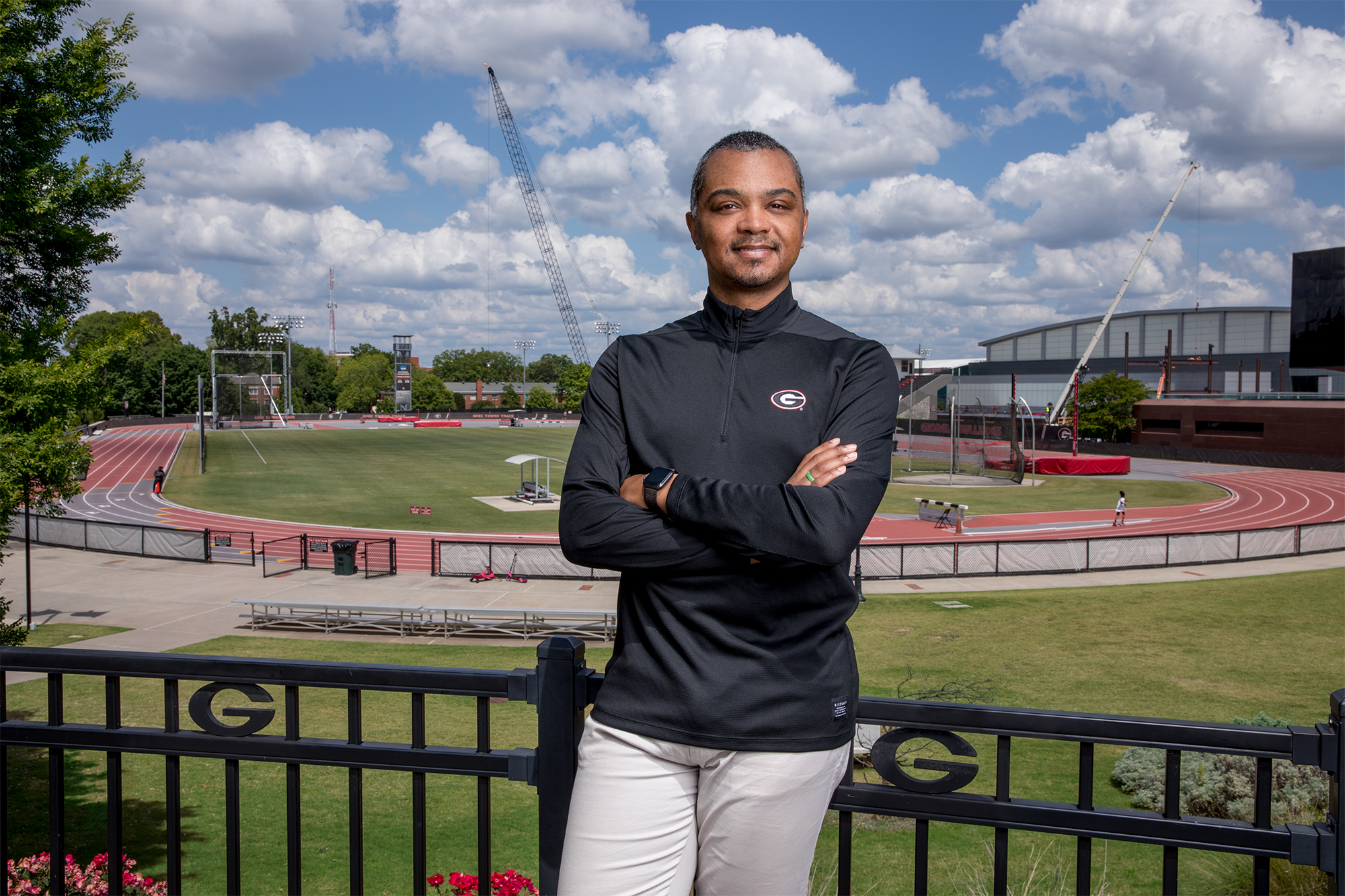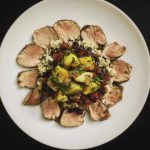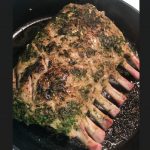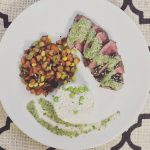Marques Dexter
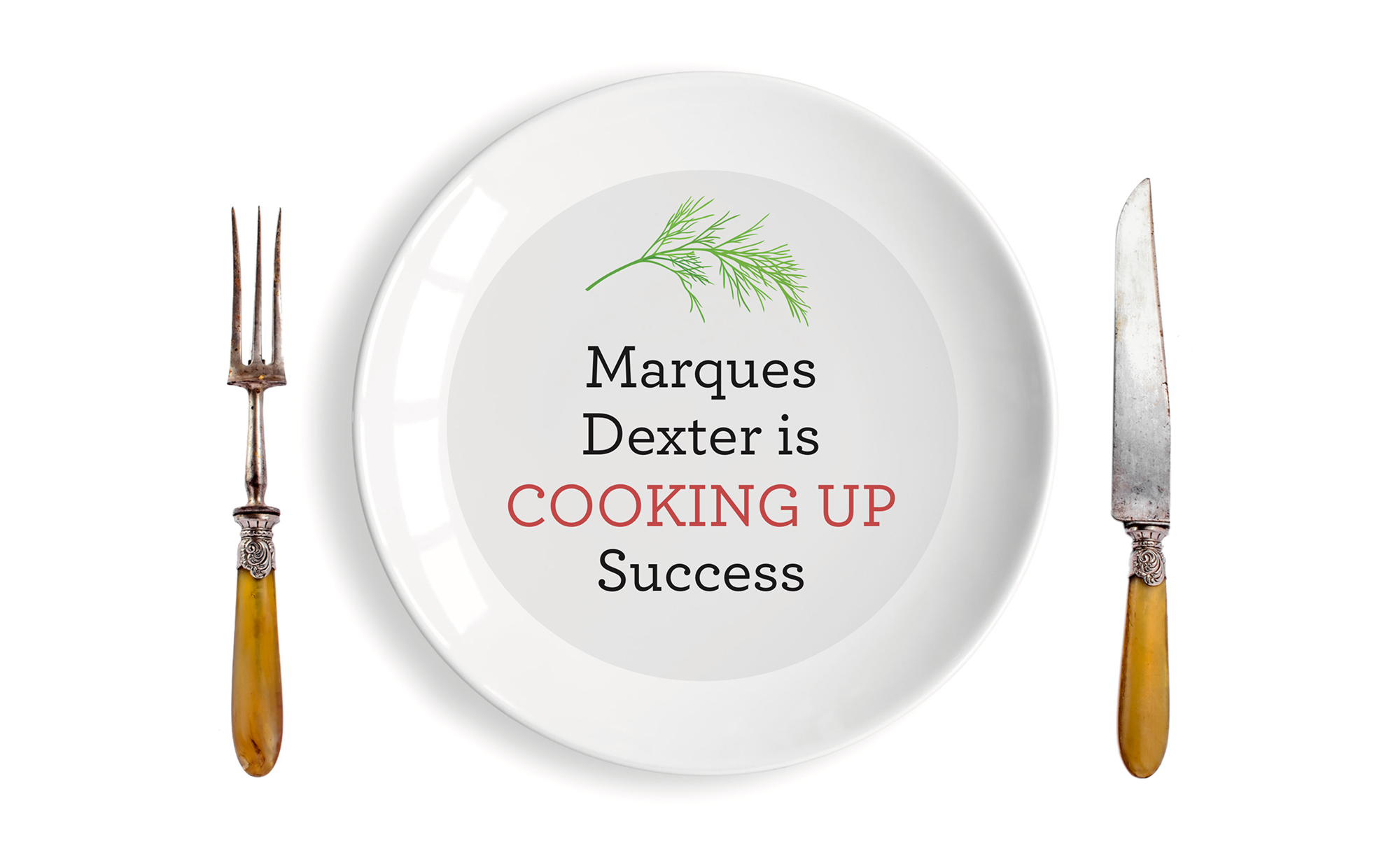
By: Cynthia Adams | Photos By: Nancy Evelyn
Marques Dexter is a fourth year doctoral candidate from Philadelphia, earning a PhD in Kinesiology with a specialization in Sport Management and Policy.
As a scholar athlete, he has walked the line, he explains, “between ‘me-search’ and research” in understanding the ways achievement and athletics shape and influence Black males’ identity and experiences.
He has spent his life pressing hard, managing to qualify as a teen to attend Philadelphia’s renowned Central High School. The magnet school, chartered in 1836, is so rigorous alumni include an honor roll of scientists, artists and industrialists, including John Simon Guggenheim, namesake of the Guggenheim Foundation.
Central High is also the only high school in the nation granted “the power to confer academic degrees in the arts instead of an ordinary high school diploma,” according to their alumni archivist and website.
Dexter says it was an advantage to come up through such a pressure cooker of an academic environment and also one where he developed friends of all racial-ethnic backgrounds. “I didn’t grow up in a predominantly Black high school—it was very diverse. I’m fulfilled by learning from others and their experiences. Many of my childhood friends were white, but I didn’t see them as being so different from me.”
He remembers being a young kid, “singing to Back Street Boys (it happened again two days ago) and Britney Spears…that’s my generation. The Spice Girls. Late 90s pop Mariah Carey.” Music helped him to understand ways in which people can connect and come together.
At Central High, the same school where John Baxter Taylor, Jr., the first African American to win an Olympic gold medal attended, Dexter excelled in track and field, running cross country and meeting figures who inspired him. He still remains close to his high school and to the influence of Coach Rose, “who instilled positive ideals within us. He was a light in my life.”
Rose helped Dexter clarify his future. “I knew I wanted to be a coach my freshman year in high school,” Dexter says.
Despite his physical talents, he rejected becoming a high-profile D-1 athlete. Division 1, or D-1, signifies the most prominent division of intercollegiate athletics.
Dexter recognized how others sometimes “wanted something for you more than you want it for yourself.” Rose, whom he discusses affectionately, was one of those figures.
Dexter simply wanted “to pay for college without having to take out loans.”
Nonetheless, his ambivalence about becoming an athlete wasn’t evident, at least not on the track or in the field. Dexter kept ascending, becoming a successful NCAA Division I athlete. Later he became a Division I and III track and field coach in the Atlantic region.
“I was first at Rider University, then I transferred my sophomore year to Robert Morris University (Coraopolis/Moon Township, Pennsylvania, and not the one in Illinois) where I received my undergraduate degree. I first was a volunteer coach and program coordinator here at UGA while completing my master’s, and once I graduated I spent six years at SUNY Cortland in upstate New York.” Dexter guided athletes to the national championship meet every indoor and outdoor season. “With at least one athlete earning All American honors in their respective event my last two years coaching.” Dexter met track stars and Olympians, like John Carlos, Gail Devers, Jon Drummond, Tommie Smith, and others. But he learned to “humanize” his heroes.
As a graduate assistant in UGA’s Office of Institutional Diversity, Dexter coordinates the Georgia African American Male Experience (GAAME) program. He is also a member of the Department of Kinesiology’s Sport Instruction Research Lab, led by his co-major professor, Paul Schempp.
His doctoral research focuses on the “identities and experiences of high achieving Black male athletes, uncovering what were the significant experiences that impacted who they are, but also discovering how those socialization experiences and identified factors to success impacted their life outcomes.”
He brings the perspective of a scholar athlete. “That was me,” Dexter says. “It’s ‘me-search’ as well as research.”
As Dexter says, he hopes to “broaden the narrative for Black males; to tease out what can we learn from them.”
In his academic role, too, Dexter has enjoyed successes. In 2018, he received the Founder’s Award from the Black Faculty and Staff Organization.
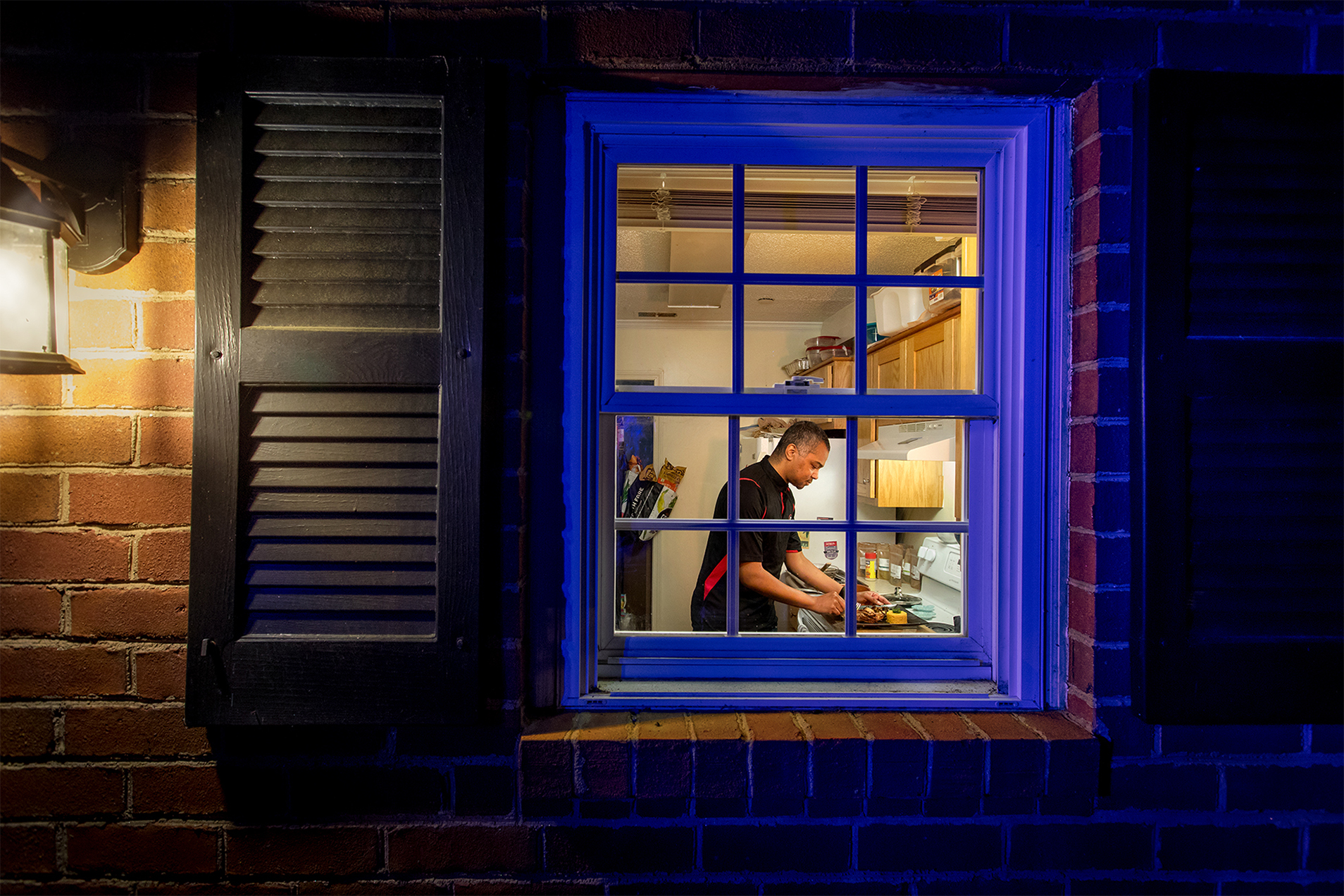
“Dr. Hawkins, Dr. Paul Schempp, my co-major professors, are life smart.” Dexter says that their empathy and mentorship engender loyalty.
The following are questions posed to Dexter during the quarantine period of the Covid-19 pandemic.
Q. You continue to get press for your scholarship and your leadership. Who shaped those aspects of you? Who are your heroes, and have you met any of them?
A. It’s a bit hard…what does it mean to be a hero? I love sci-fi, anime. It’s my escape. Capt. Benjamin Sisco, from “Deep Space Nine” series of “Star Trek” comes to mind. Sisco is compassionate. He was the first Black male Captain and lead character for the series. He helped me to see that those who look like me can accomplish great feats
Even in sports, I never wanted to meet these athletic heroes. My grandmother is the strongest person I ever met. I’ve always been surrounded by people who are realistic, optimistic, and grounded. They remind me that other people have had it worse…challenged to do better and be better.
I’ve been forced to humanize heroes. I have been able to connect instead with “humanism” and have a better understanding of who they are deep down. I’m interested in history. Not being influenced by what others says.
There’s Michelle Cook, UGA’s Vice Provost and Diversity Officer. She has been a huge influence on me. When I think of her, I think of Clair Huxtabel, the television character. Her equanimity. How she navigates things. She’s educated, but not flashy. (Also she is like Mary Frances Early.) She’s someone that models being a diversity officer…this essence that makes you comfortable and believe in her.
Q. Coaching and athletics are famous for employing motivation techniques with successful track athletes. Did any of your athletic pursuits bleed over into your academic goals?
A. I’m not a big sports fan…why would I watch a track meet when I had to be at one almost every single week? I didn’t engage until high school, when I was doing track and field. My dad’s sister, Aunt Barbara, was a track athlete. Unfortunately, she got a track scholarship and couldn’t accept it.
Reflecting back, I think what I wanted to do was give that to my aunt, to succeed. She’s one of my biggest supporters. Both sides of my family had a prominent place in my life (despite my parents’ divorce). Everyone was invested in my success. Wouldn’t let me limit myself.
Q. Were there moments in your life when you found yourself thinking, how has this happened?
A. The first time was at San Jose State. In October of 2018 I was invited to be a keynote speaker at the Institute for the Study of Sports Society and Social Change’s inaugural student research fair, as well as attend ceremonies for the 50th anniversary of the 1968 Mexico City Olympic protests. I got to attend their Legends Dinner, and met heroes like John Carlos, Tommie Smith, Dr. Harry Edwards, and others who were part of the history of Civil Rights.
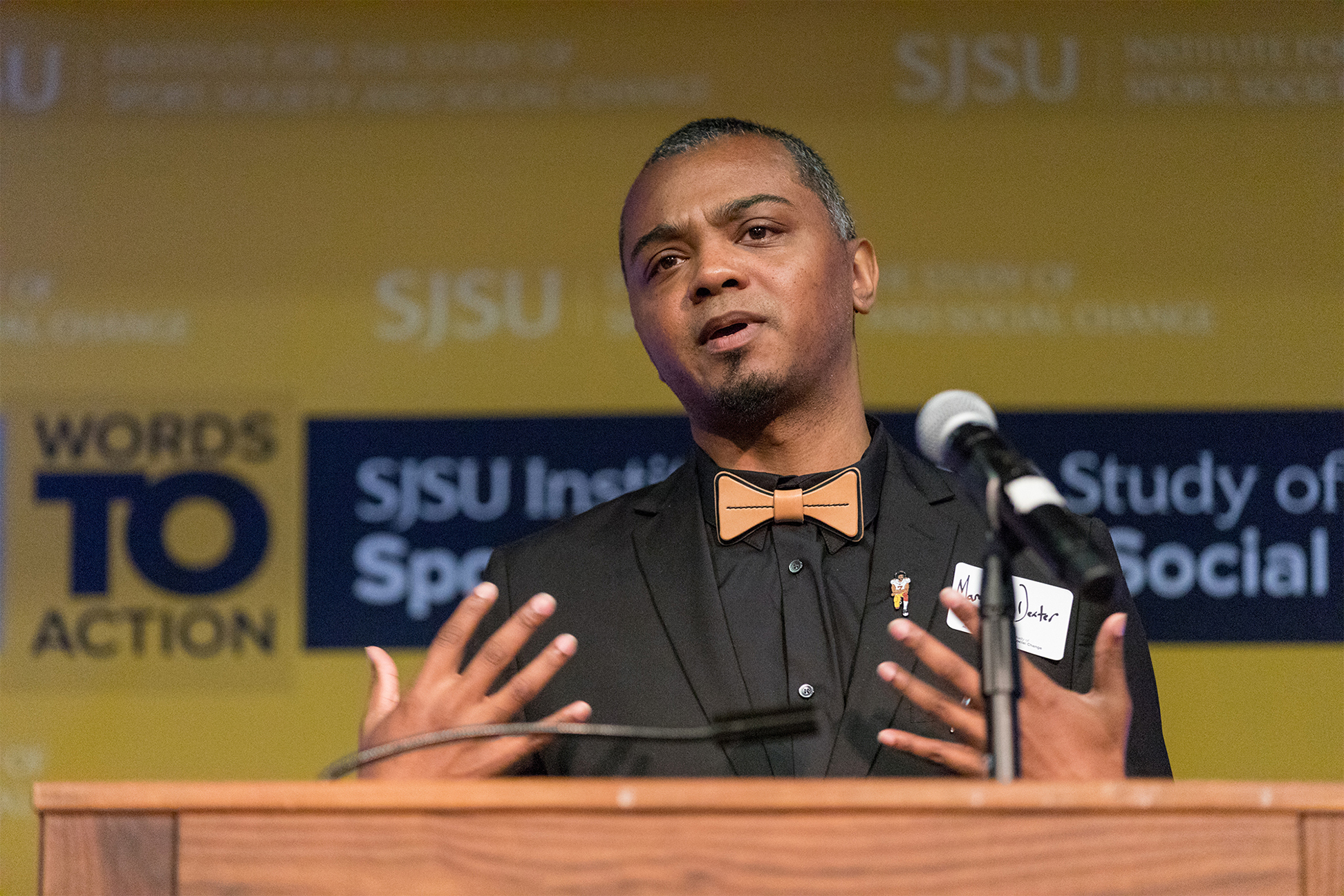
Dexter was a keynote speaker at the San Jose State University Institute for the Study of Sports Society and Social Changes inaugural student research fair. Photo Courtesy of Marques Dexter.
That same academic year, I was a panelist at New York University for their annual Martin Luther King celebration…sitting on the panel with a former WNBA player and two senior scholars. We discussed the intersections of race, gender and activism in American sports. It was weird; here I am, a second year UGA doctoral student, involved at a NYU panel. An amazing year of self affirmation. I learned that you don’t have to be published in the academic press to find affirmation.
I am the result of so many people who look like me. I always think, when I’m tired, never think of myself as an imposter. What I’m doing is bigger than me. I’m always on call for students, knowing I can be there for them. It might be life or death for them.
I want to bring truth to power to a larger audience; you can’t be transformative if you are only sharing knowledge for metrics. Even King said he gained power from Gandhi and others. As I learn more of history, I learn more about myself.
How can others do this if they don’t see someone (like them) being a leader? I understood—it was almost a calling. I didn’t do this, for example, running to be an officer of GAPS, for me. I understood how important it was to be visible.
This doctoral journey is an honor.
Q. As a Philadelphia-born scholar-athlete, how did you happen to come to UGA for graduate work?
A. I didn’t want to go to a big school and be a number.
Coming back to school was one of the most important things I’ve ever done. I only applied to UGA. When I got my master’s, I was still involved with athletics. I didn’t get a chance to know the institution. I was adamant that when I got back to graduate studies, I was going to have a true UGA experience. Almost everything I’ve ever been able to do, like studying abroad, I never got to do before because I was involved with athletics and coaching.
I ran for GAPS president because there weren’t many Black males involved…As president of GAPS, I could represent others and still have my own identity. Mary Frances Early, whom I met through that, is a person who came into my life and is a light…a light in a lot of our lives. A warm embracing presence. I’m always grateful to be in her company
I loved academic advising, and was an RA, a residential advisor. The first student government officer of color in my institution’s history. That’s why I went to a predominantly white institution. I got into Morehouse—and got in early. But I thought, why would I want to go somewhere and be like everyone else? I wanted to stand out in a place as a Black male—but how when everyone around me is a Black male, high achieving?
I didn’t like being boxed in, defined by others. That’s the foundation of my success, I think.
Q. What might surprise others about you?
A. Cooking is my self-care. If you see me cooking a lot, I’m probably stressed.
As for cooking in a pandemic? I’m great. I’ve been going live on my Instagram to cook with people and answer questions.
My Instagram is icook4me. I admire Chef Gordon Ramsey, the excitement he gets from learning something new. I’m not a chef, I’m a cook. I support culinary arts and what these students go through to become formal chefs.
When I was young and hungry, and wanting to eat something different, I learned to cook. But during my master’s, I wanted to try new food and was on a budget. It picked up around 2013 when I was becoming stressed over work and needed to clear my mind, so I just found recipes and cooked them. I started watching videos from Chefs Ramsey, Marcus Samuelsson, and several others. And working at the Art Institute of Atlanta.
Dexter posts regularly to his Instagram page @icook4me. Pictured are recent dishes he created. He finds cooking is a great way to relieve stress.
I was (briefly before starting school full-time in the fall of 2016) the Career Services Advisor that was charged with supporting the Culinary Arts & Culinary Arts Management programs there, as well as Graphic Design, Illustration, and Advertising. Within the role I assisted students with finding gainful employment, went to professional organization events, networked with local companies, as well as connected with the faculty and staff within the programs to gain a better understanding of the students, their skills, and personalities.
Most people would be surprised to learn I’m shy. Very much an introvert. I don’t like talking in front of people. Always nervous. I remember every single track meet of the year…I would even make my athletes nervous. On Meyers Briggs, I want to say I’m an INTP; I am introverted with extroverted qualities related to networking.
Introversion means the pandemic has meant taking time to reflect.
